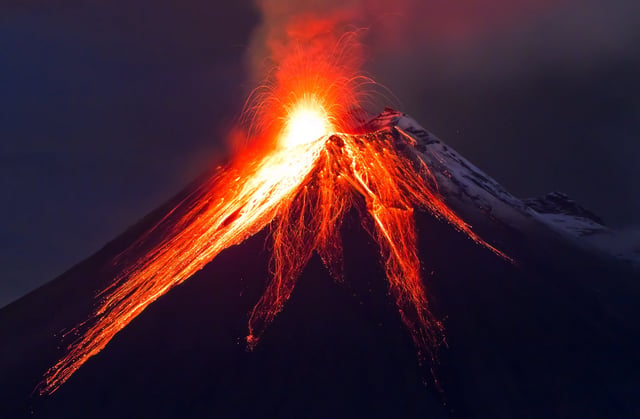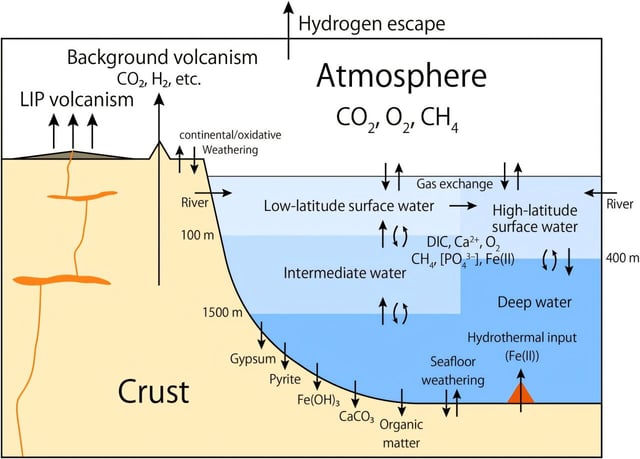Overview
- Scientists have identified massive volcanic eruptions as a key driver of temporary oxygen increases, or 'whiffs,' before the Great Oxidation Event (GOE).
- Volcanic activity released carbon dioxide, warming the planet and increasing nutrient runoff into oceans, which fueled photosynthetic microbes producing oxygen.
- The study suggests Earth's growing continents amplified these oxygen spikes by increasing nutrient availability in the oceans.
- These transient oxygenation events likely helped early microorganisms evolve oxygen-processing abilities, crucial for later complex life development.
- The findings provide a mechanistic explanation for geochemical evidence of oxygen 'whiffs' in ancient rock formations, highlighting the interplay between Earth's geology and biology.

